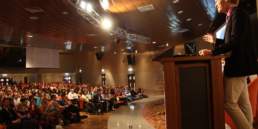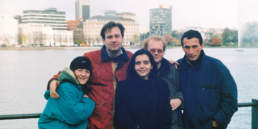The human rights are constantly in danger. Even in democracies, even in the EU. The new AEGEE project “Democracy in Practice” will show participants in a series of training courses, how they can make Europe a better place. How? “By advocating for human rights education and multiplying this knowledge in their local society”, says Maria Arends (HRWG), manager of the new project.
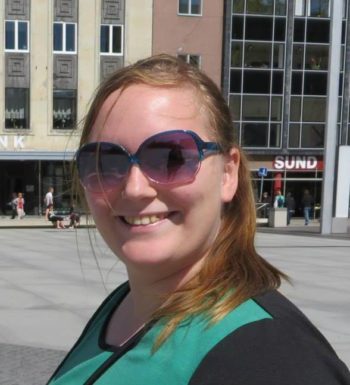
Golden Times: Your project has a funny title. What is “Democracy in Practice” about?
Maria Arends: Yeah, the name has a pretty double meaning, which is why I like it a lot. Democracy in Practice will consist of a series of training courses that will explain the participants the relation between democracy and human rights. Besides that, it also trains the participants in becoming active in advocating for human rights education and multiplying this knowledge in their local society.
Golden Times: Don’t we all already practice democracy?
Maria: Practicing democracy is more that merely living in a country with a democratic leadership. Firstly, because there are levels in democracy – I found an article in the AEGEEan the other day about Albania very interesting and explanatory about this. Moreover, in 2012 only 11% of the world population lived in a full democracy. And speaking of Europe, we have full democracies, flawed democracies, hybrids, and even authoritarian regimes… Secondly, even if most of us are living in countries with at least some degree of democracy, and even if we try to be as democratic as possible in AEGEE, I would still say: no.
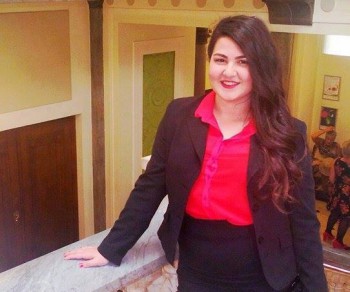
Golden Times: Why?
Maria: Practicing democracy is more than just voting. It is standing up for your rights. It is taking an active role in society and not just let the elected politicians simply do whatever they want. A very commonly heard phrase is: “If you don’t go to vote, then later you cannot complain either”. It implies that you can if you did vote. And yes, I believe that you can. But don’t stop there! Rather do something about it! Make sure that you are represented! I think that is the main lesson to take from our project.
Golden Times: Who created the project?
Maria: The idea is not super new. Last summer, at the end of my term as HRWG speaker, we wanted to apply for some UNESCO grant. We talked about the topic of lack of democracy and the corresponding human rights violations – for example after what happened in Turkey in spring. We worked on it, did not get the grant, but the idea was born. Every once in a while we talked on Skype, the project got improvements, and as I am part of the Training of Trainers in Human Rights Education from the Council of Europe, I got the opportunity there to develop it more with the help of my mentor, who was experienced in the topic. So, then finally in June we had a meeting at the CD house with Adrienn, Danae, Lia, Miguel, and me. We were super motivated and did a lot of work in very little time. So the concept as it is now is the result of that meeting. But, without all the others who helped with it last summer and during the year, I am sure it would not have gotten where it is now.
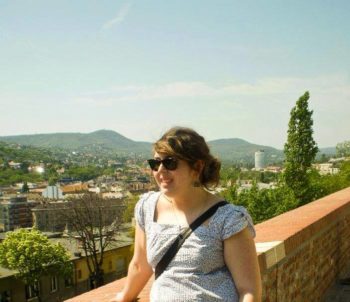
Golden Times: It will be an AEGEE-Europe project soon, right?
Maria: Well, we’re crossing fingers for that, indeed! The outline is almost ready, so it’s pretty exciting now! We have been doubting whether to have it as a project within the HRWG or an AEGEE-Europe project, but we decided on the latter because it has some benefits.
Golden Times: What benefits? What does that status mean?
Maria: For example, we now have a big team of 16 people from different backgrounds, not only HRWG members. We will be allowed to use the name of AEGEE-Europe and to contact external parties, which might be extremely useful when talking about training courses. It is more official, including signing a contract stating our rights and duties. Along with that an AEGEE-Europe project can be represented at the Agora by envoys, just as working groups and commissions.
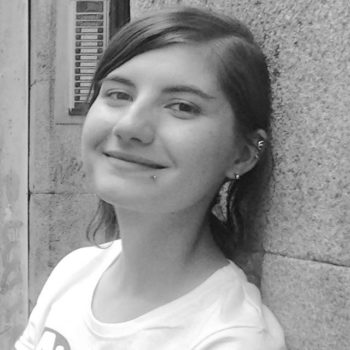
Golden Times: You are organising training courses in which participants can learn about the link between democracy and human rights. What is that link?
Maria: It is often stated wrongly that democracy is a human right, but it is not. Though we do all agree that in order for a state not to violate human rights, a certain degree of democracy is needed. So my answer would be: yes, because demos means people and kratos means power, so if the people have the power, they should be able to participate, to express their opinion, to get to know about what is happening in the media and via other channels. That’s a very short summary.
Golden Times: Are you focusing just on violations of human rights in Europe? Or worldwide?
Maria: Though on a global level there are many interesting and painful things happening, we will mainly focus on issues the participants can relate to. As the idea is that they become multipliers and to have young people in Europe participating more actively in society, this will be our main focus. Nonetheless, it might happen that we will use a non-European case as an example.
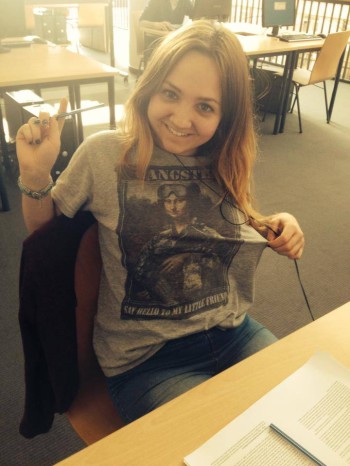
Golden Times: Which are for you the biggest violations of human rights in Europe?
Maria: There are actually quite a bit. For example, the shooting of a random jetliner seems like quite a violation to me – let alone the situation in Ukraine at the moment in general. Or what about the way Fortress Europe treats migrants? Or the treatment of minority groups, for instance Roma? Or, a bit more controversial maybe: what about the death penalty? Belarus still carries it out… So to name only the most basic ones: equality, freedom of movement, right to life, but there are of course many more.
Golden Times: So, violations of human rights can also happen in democracies?
Maria: Yes. Well, not the death penalty, but the other two examples I have mentioned are within the EU and all countries in the European Union are democracies.
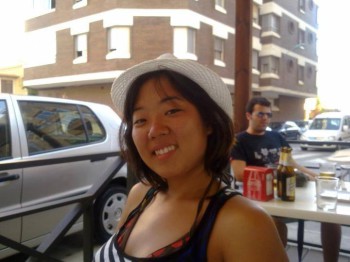
Golden Times: What are the ingredients of a healthy and sustainable democracy?
Maria: As mentioned, a democracy should give the power to the people. As aggressive as that sounds, it means that all people – here we see the first principle, equality – should have a certain extent of power. With the help of the next principles, active participation and personal autonomy, they can influence the construction of laws and take care that the laws are the result of what the people want. They have been involved in the process, and even though it might not always be one’s first preference, they are okay with the outcome and don’t feel like they are imposed.
Golden Times: What can AEGEE members and antennae do to make Europe more democratic?
Maria: Learn what you can do to let your voice be heard by decision makers! That’s not always easy, and I believe it should be taught in every educational institution, but also by international non-governmental youth organisations such as AEGEE. Voting is an important first step, but voting alone is not enough.
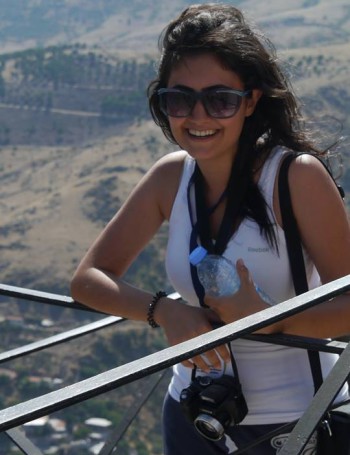
Golden Times: You choose the form of a week-long training course. You also wrote: “Each participant will leave the course an action plan, which will be the basis for their personal follow-up to have an impact in their local community”. Can you tell us a bit more?
Maria: The aim of each course is that the participants become multipliers. So they take part in sessions about human rights and democracy that will be held by experienced and knowledgeable trainers. Apart from this, there will be a skills day in which they learn everything they need about how to spread the message, and there will be time allocated for them to work on the action plan. The trainers will help and guide them in this as well, also after the training course. In this plan they think of ways how to do this and also where, because everyone’s local reality could be a bit different.
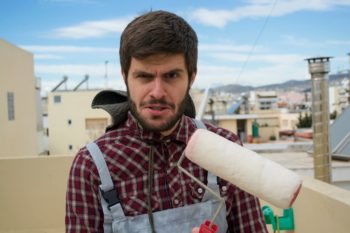
Golden Times: So the focus are individuals who will become multipliers? Not activities of antennae?
Maria: It would be nice if the participants do combine this with local events, but this is not necessarily the focus of the project. It should be the participants’ choice. Oh, and before I forget: the participants also develop a campaign during the training course, which will be showed to university representatives of the hosting local at the end of the training. This is part of our advocacy objective: mainstreaming human rights education in the formal education sphere.
Golden Times: You announced the project six weeks ago. What has happened since then?
Maria: A lot! We looked for a team, we looked for host locals, we had a Skype meeting with the brand new team, we developed communication guidelines for the team, we are now working on two grant applications which have the deadline at the end of the month, the project outline is almost done, the logo is in the making…
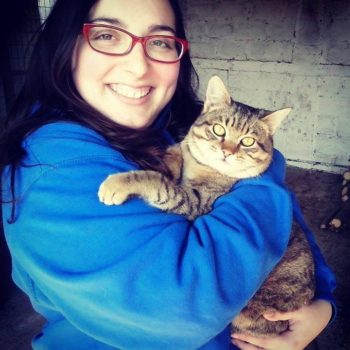
Golden Times: There was an open call for team members. Can members still join the team?
Maria: Unfortunately we cannot have new members in the team for now. We are 16 now, which is quite a big team, but as right now the project seems quite big as well, we considered it best to have couples for most positions and a content team. The thing is that for us there will always be something going on, trainings that need to be developed, the very important impact measurement, the funding applications, the materials, a website that should be alive and kicking… I think I forget a lot of things, but I am sure you get the idea. However, what we will look for in September is trainers! So everyone who is interested: stay tuned! And also for the open calls for participants, of course!
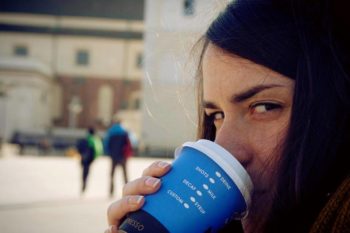
Golden Times: When and where will be the first events?
Maria: The first event will hopefully be around the 10th of December, the International Day of Human Rights, but will look a bit different. However, it’s not concrete at all yet, so let me not spoil too much. The first training courses will be in February 2015. We depend a lot on grants, so I’d rather not say too much now, as you never know if we will get them in the end. What I will say is that we have selected 11 amazing locals and most of the Training Courses will take place in the first semester of 2015. So please, everyone, cross your fingers for us!
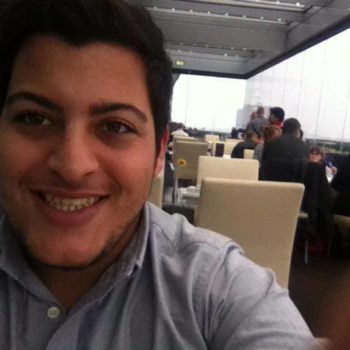
Golden Times: From which parts of the Europe did you get the biggest feedback?
Maria: It is quite broad. In the team we have four Greeks, three Dutch, two Spanish, two Hungarians, two Macedonians, one French, one Turkish and one Ukrainian. For the hosting locals we also got a lot of response from Germany. And then the people who just tell you how they like the idea… also a bit from the same corners.
Golden Times: Do you already have a calendar of the training courses?
Maria: Kind of. But we keep it to ourselves for now, since we do not know what will happen with the grant applications.
Golden Times: A few words about you: how old are you, what do you study, where are you from?
Maria: I am 24, I study Spanish Philology, but I am very interested in human rights and I’m considering to actually do my Master’s in that field. I was born in Groningen and moved back to this lovely city when I went off to study. That was 7,5 years ago, and in a couple of weeks I will move to… nowhere. I will travel around for half a year – my first stop will be Sicily! My antennae are AEGEE-Groningen and AEGEE-Tarragona, they’re both so awesome that one can’t possibly make a choice!
Golden Times: What’s your AEGEE background? How and when did you join?
Maria: I joined in February 2011. It was after doubting for over half a year, because I’d heard about AEGEE already in the summer of 2010, but I decided first not to join, because I was a member of another association and their social drinks were at the same time. However, story of my life, I am the worst with choices, so in the end I joined both. When I went to Brussels with AEGEE-Groningen in spring 2011, I heard about the – at that time- flagship topic Social Inclusion and I knew that I wanted to become a part of that. And then I decided with some others to reestablish the HRWG. And then I saw an open call for the Health4Youth project, and again because of my choice-issue, I also became involved in that. In the mean time I have done some other things as well. Joining AEGEE was the best decision, I even ended up leaving the other association for it!
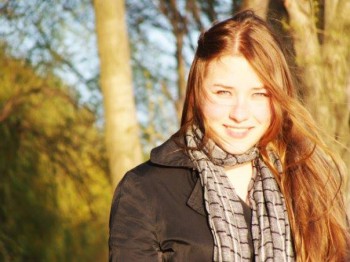
Golden Times: You are also NetCom member. How do you manage to balance the NetCom task and the project?
Maria: Good question. Now it is summer and I manage somehow. I do realise that I need to find a system, because both tasks are huge. Now that I do them, I realise that a project manager and a Netcommie have one thing in common: you do many tasks that nobody really notices… Luckily also a lot of things that people do notice, and you get to communicate a lot with people, so that makes both really motivating as well. Right now both positions are relatively new to me still, so it is good that it is summer and I can get used to them. But yeah, when I start writing my thesis, I’m sure I need to find a system, because if not, I fear the worst – for my thesis (laughs).
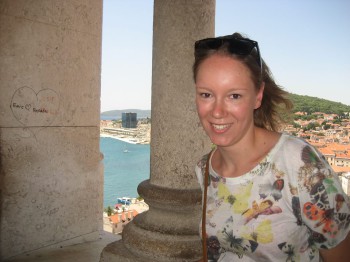
Golden Times: Anything else you would like to add?
Maria: I couldn’t be more happy about the team and the hosting locals and everything. So please, cross fingers for the grant applications, and for updates you can stay tuned through our Facebook page: www.facebook.com/DiP.AEGEE!
Read also: http://www.zeus.aegee.org/magazine/2014/06/11/democracy-in-practice-a-new-project-about-civic-education/
Further reading: https://docs.google.com/file/d/0B57bIk0Hdqs1YmRFV3ZvOXV1VVk/
Related Posts
1st August 2019
The Gallery of All Presidents of AEGEE-Europe
Here is the gallery of all Presidents of AEGEE-Europe - with photos of every one of them. Enjoy the list!

